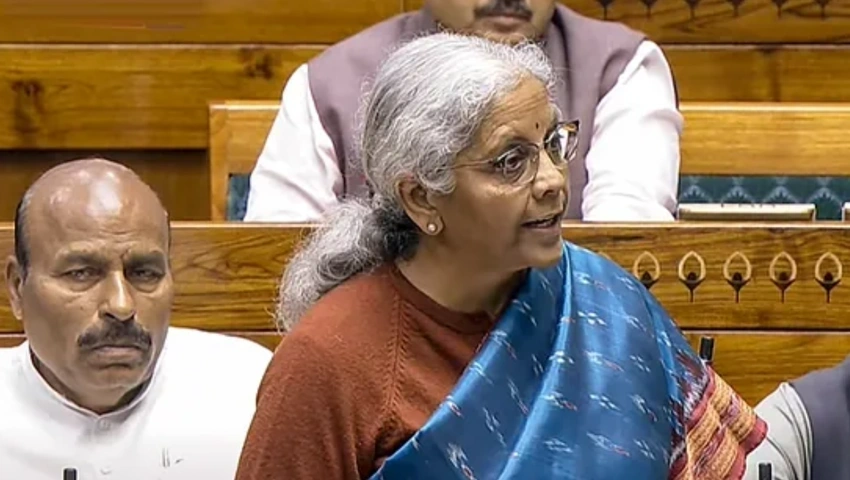The Indian Economic Survey 2025 provides a comprehensive roadmap for India's economic future, with a clear call to action for the corporate sector to align with national objectives. Here's a breakdown of the top insights and the government's guidance for the corporate sector.

1. Emphasis on Deregulation
Chief Economic Advisor V. Anantha Nageswaran highlighted that deregulation will be a significant theme in the upcoming Economic Survey. The government aims to reduce regulatory burdens to foster job creation and enhance female workforce participation. For instance, there are currently 118 occupational restrictions for women across various states. By easing these limitations, the government seeks to boost female labor participation.
2. Shift from Privatization to Revitalization of State-Owned Enterprises
The government is pivoting from extensive privatization plans, choosing instead to invest billions in reviving state-run firms. This includes a $1.5 billion rescue package for two state-owned companies, notably helicopter operator Pawan Hans. Privatization plans for at least nine other state-owned units are currently on hold due to opposition from various ministries.
3. Encouraging Foreign Direct Investment (FDI) from China
Despite geopolitical tensions, the Economic Survey suggests that attracting FDI from China could bolster India's exports and help balance the trade deficit. Chief Economic Advisor Nageswaran recommends focusing on direct Chinese investments rather than integrating into China's supply chain. This approach aims to reduce India's $85 billion trade deficit with China.
4. Projected Economic Growth
The government projects a growth rate of 6.5% to 7% for the fiscal year 2024-25. This cautious optimism reflects a slight decrease from the previous year's 8.2% growth. Factors influencing this projection include global geopolitical challenges and domestic economic conditions.
5. Addressing Wage Disparities
The Survey highlights a "creeping informalization" of the workforce post-pandemic, with an increase in contractual employment. Wage growth for these employees has not kept pace with inflation, exerting downward pressure on consumption. The government urges corporates to address wage structures to boost consumption and savings.
6. Strengthening Micro, Small, and Medium Enterprises (MSMEs)
The Survey underscores the need to transform small and medium enterprises into larger entities. This involves breaking the "tyranny of concessions" that incentivize firms to remain small to avail benefits. A robust MSME sector is crucial for increasing manufacturing's share in GDP.

7. Focus on Capital Expenditure
There's a renewed emphasis on capital expenditure to drive economic growth. Investments in infrastructure and other capital projects are expected to stimulate demand and create jobs, providing a foundation for sustained economic expansion.
8. Bridging the Education-Employment Gap
The Survey identifies the need to align educational outcomes with industry requirements. By focusing on skill development and vocational training, the government aims to reduce unemployment and meet the demands of a dynamic job market.
9. Promoting Sustainable and Green Financing
Recognizing the global shift towards sustainability, the Survey advocates for a clear framework for green transition financing. This includes investments in renewable energy and sustainable practices, positioning India as a leader in the green economy.
10. Enhancing State Capacity and Governance
The Survey emphasizes the importance of strengthening state capacity and governance to implement policies effectively. This involves improving administrative processes and ensuring that government initiatives reach their intended beneficiaries.
Government's Recommendations to Corporates:
- Reevaluate Wage Structures - Corporates are encouraged to adjust wage policies to ensure employees' earnings keep pace with inflation, thereby boosting consumption and savings.
- Invest in Skill Development - Businesses should invest in training programs to bridge the skill gap, ensuring a workforce ready for modern challenges.
- Adopt Sustainable Practices - Companies are urged to integrate sustainable practices into their operations, aligning with global environmental standards.
- Support MSME Growth - Larger corporations can play a role in nurturing MSMEs through partnerships and supply chain integration.
- Engage in Deregulation Efforts - Companies should collaborate with the government to identify and remove regulatory hurdles that impede growth and innovation.
#EconomicSurvey2025 #IndiaEconomy #DeregulationMatters #CorporateIndia #EconomicFuture #NationalObjectives #BusinessGrowth













Just read the 2025 Economic Survey, some interesting trends to watch out for this year!
high time, companies start paying more to their employees, instead of filling their coffers
Some comments may have been deleted or flagged.